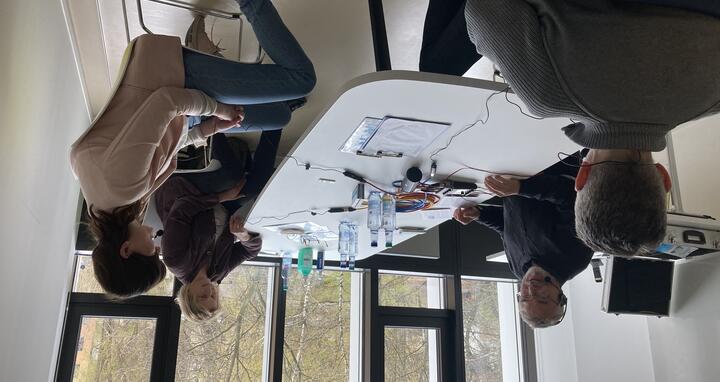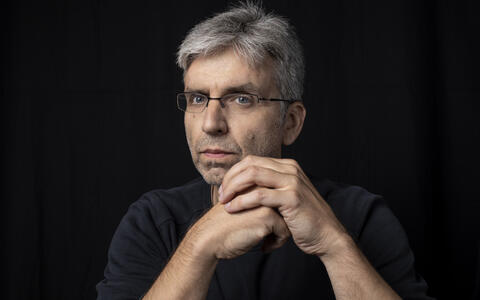BR50-Podcast: Animal Experiments in Berlin
Scientists across Berlin are working at many different scientific institutes to improve our health. Their goal: to find out, for instance, why we get cancer, Alzheimer's or heart failure or why our bones become weak. They aim to develop new therapies and medicines. None of this can be achieved without animal research.
Michael Gotthardt studies how the heart works. He uses animal models and artificial heart tissue to develop new therapeutic approaches.
Both scientists and politicians have promised to develop alternatives to animal research in order to ensure that the number of mice, fish and rats used in the laboratories can be reduced. But how does that work? Can mini organs in the Petri dish or organs on a chip replace experiments on and with animals? What are the challenges and hurdles? And why does it take so long to develop alternative methods?
Our BR-50-podcast host Thomas Prinzler talks about all this with:
- biotechnologist Julia Scheinpflug from the German Centre for the Protection of Laboratory Animals at the German Federal Institute for Risk Assessment
- Christa Thöne-Reineke, Professor of Animal Welfare, Animal Behaviour and Laboratory Animal Science at the FU Berlin and at the new Einstein Centre 3R
- Michael Gotthardt, Professor and Head of the research group for Neuromuscular and Cardiovascular Cell Biology at the Max Delbrück Centre for Molecular Medicine in the Helmholtz Association.
Editors: Jutta Kramm (Max Delbrück Center), Anja Sommerfeld und Gregor Hofmann (Berlin Research 50)
Further information
- BR50 Podcast Berlin Research - Research in Berlin
- Research, animal experiments and the 3Rs at MDC
- Preclinical Research Center at MDC
- German Centre for the Protection of Laboratory Animals (Bf3R)
- Einstein Center 3R






